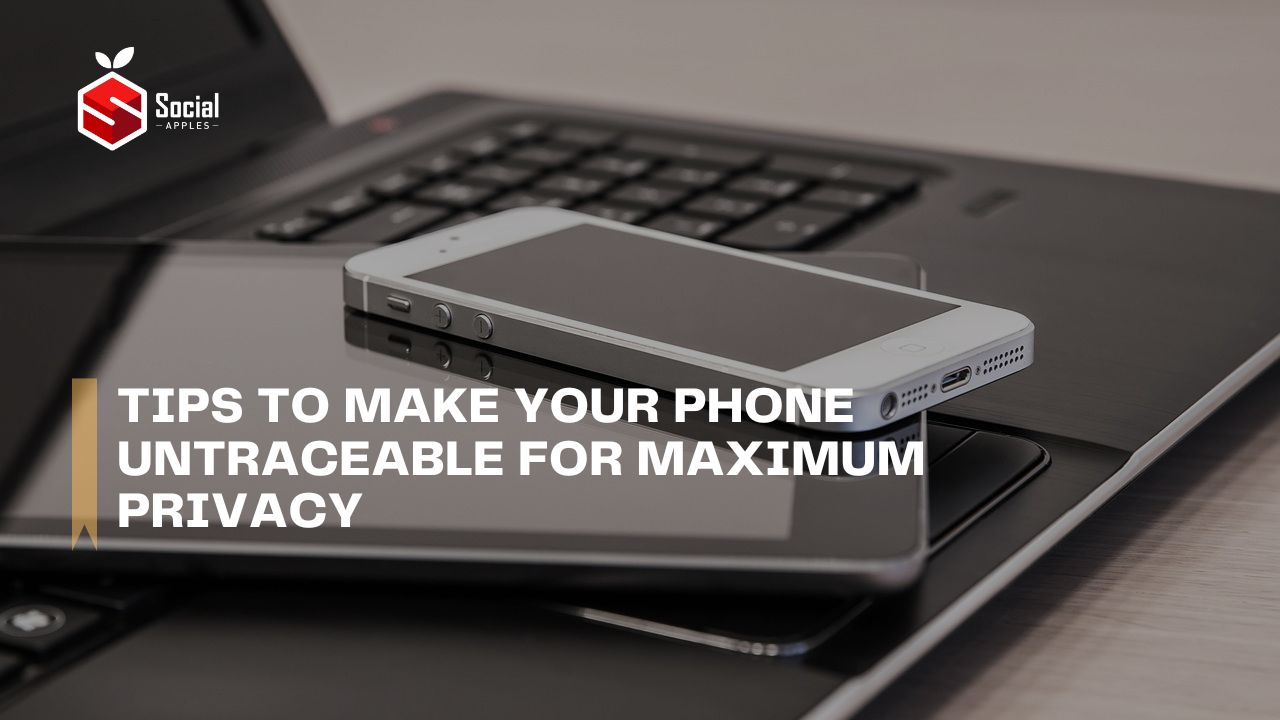Maintaining privacy has grown to be of utmost importance in the modern digital age when cell phones have extended to become an extension of ourselves. The need to guarantee that our digital footprints are small and our phone activities are untraceable is developing as a result of the growth in cyber dangers, worries about firms selling our data, and surveillance difficulties.
For those truly concerned about their digital privacy, the question arises: how can one make their phone untraceable? Mysterium VPN is one of the important tools in this area. The tactics for maximizing phone privacy are covered in-depth in this article, with an emphasis on Mysterium VPN’s advantages.

Contents
Understanding Phone Traceability
In an age where nearly every individual owns and operates a smartphone, the significance of understanding phone traceability cannot be understated. In spite of the fact that these innovative ponders have revolutionized the way we connect and get data, they have inadvertently opened entryways to our private lives, propensities, tastes, and every so often indeed our most individual insider facts.
What Does Phone Traceability Mean?
Phone traceability essentially refers to the capacity to monitor a phone’s operations and whereabouts. This goes past essentially deciding a device’s exact area and incorporates keeping an eye on any online action that takes place while it is being utilized. Every call made, every website visited, every app installed, and even every text sent can potentially leave a trace.
Sources of Traceability
Cellular Networks: The very fundamental function of a mobile phone—making calls—relies on cellular networks. This also means that, to a degree, your phone’s location is constantly known to your service provider.
Internet Activities: Smartphones are, essentially, pocket-sized computers. Every time you visit a website, use an app or even engage in messaging platforms, you leave digital footprints. These can be monitored, stored, and even analyzed.
Built-in GPS: Modern phones come equipped with GPS functionality, serving a myriad of useful purposes from navigation to location-based reminders. But this also means your phone can be traced to its exact location.
App Permissions: Many apps request (and sometimes require) access to various features of your phone—like the camera, microphone, contacts, or location services. While many apps use these permissions legitimately, they do open doors for potential misuse.
Cookies and Trackers: Websites and online services often use cookies and trackers to enhance user experience, remember preferences, or target ads more effectively.
The Ramifications of Traceability
Why should the average person be concerned about phone traceability? Here are some considerations:
Personal Privacy: At a fundamental level, nobody wants their every move—physical or digital—to be monitored or analyzed. Private and personal space are being invaded.
Data profiling: By monitoring your phone use, businesses may compile a thorough picture of your habits, passions, and preferences. This might be sold to outside parties or used to target advertisements more precisely.
Security Concerns: Traceability can lead to potential security threats. Cybercriminals may create tailored phishing attacks, scam calls, and even blackmail efforts if they have access to precise information about you.
Legal and Surveillance Issues: In some countries or regions, governments might monitor the phone activities of their citizens for various reasons, leading to potential legal issues or infringements on rights.
Also Read: How to Log in to YouTube at yt.be/activate with TV Code?
Tips for Making Your Phone Untraceable
Use Encrypted Communication Tools:
Instead of standard calls or texts, use encrypted communication apps like Signal or WhatsApp. These applications ensure that only the receiver can read or listen to your communications by encrypting them from beginning to end.
Turn Off Location Services:
Your phone’s GPS can be a significant privacy vulnerability. Turn off location services when not needed, and be cautious about which apps you grant location access.
Limit Ad Tracking:
Both Android and iOS offer settings that allow users to limit ad tracking. While this doesn’t make you entirely invisible, it reduces the amount of data advertisers collect.
Regularly Clear Browsing Data:
Regularly delete cookies, cache, and history from your browsers. This stops websites from following and profiling your browsing exercises through cookies.
Avoid Using Personal Identifiers:
When signing up for apps or services, avoid using your real name or primary email. For such sign-ups, think about setting up alias emails.
Use a Reliable VPN Service:
A VPN, or Virtual Private Network, masks your internet activity by routing it through a private server. Among the myriad of VPN services, Mysterium VPN has emerged as a distinct player in the domain.
The VPN service Mysterium VPN
At the heart of digital privacy tools, Mysterium VPN serves as a decentralized VPN service. Here’s why it stands out:
Decentralization: Unlike traditional VPNs that route your traffic through centralized servers owned by a single entity, Mysterium VPN leverages a peer-to-peer network.
Pay-as-You-Go System: With Mysterium VPN, users only pay for the service they use, offering flexibility and ensuring you’re not tied down to monthly or yearly plans.
Open-Source Nature: Being open-source, Mysterium VPN promotes transparency, allowing anyone to inspect, review, or improve the code, ensuring no hidden backdoors or malicious intent.
High-Level Encryption: Mysterium VPN offers strong encryption, guaranteeing that any possible listeners cannot decipher the internet activities on your phone.
Consider Going Incognito:
Private Browsing Modes: Most browsers offer incognito or private browsing modes. While this doesn’t make you invisible, it prevents the browser from storing your browsing data.
Educate Yourself:
Permissions Awareness: Regularly review app permissions. Ensure apps don’t have access to data or features they don’t need for functionality.
Stay Updated: Frequently, privacy vulnerabilities arise from outdated software. Regularly update your phone’s OS and apps to benefit from the latest security patches.
Consider Specialized Devices:
Privacy-Centric Phones: Some phones are designed with privacy as their core feature. Research and consider switching to such devices if privacy is a top concern.
Conclusion
In an era where every digital move is potentially watched, analyzed, or monetized, maintaining phone privacy is not just a preference; it’s a necessity. While the journey to make your phone entirely untraceable requires vigilance and consistent effort, with tools like Mysterium VPN, it becomes a more achievable endeavor. In the end, the goal is clear: a digital life where your data belongs to you and remains private and untraceable.













